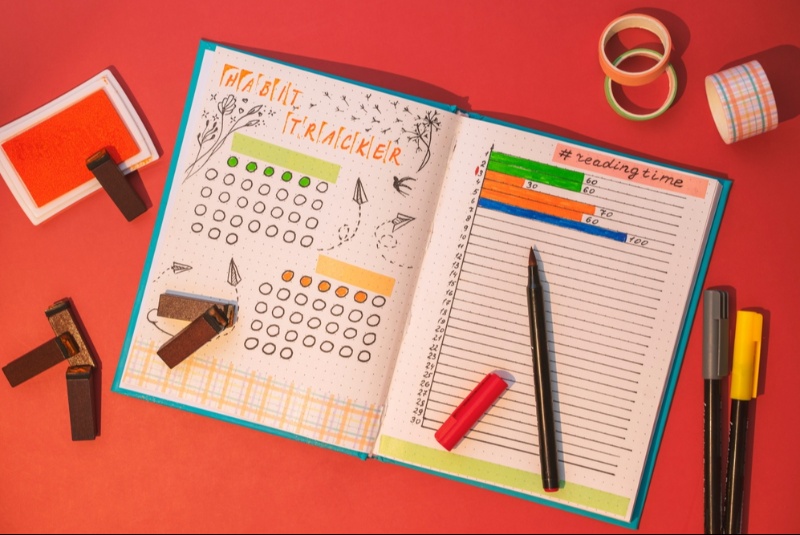In today's fast-paced world, the importance of taking breaks is often overlooked. Whether you are working in an office, studying, or managing a busy household, taking regular breaks can significantly enhance your productivity and overall well-being. This article explores the various benefits of taking breaks and provides insights into how to incorporate them effectively into your daily routine to achieve a healthier, more balanced lifestyle.
Boosting Productivity and Focus
Taking regular breaks helps to maintain high levels of productivity and focus throughout the day. Prolonged periods of work can lead to mental fatigue, reducing your ability to concentrate and make decisions effectively. Short, frequent breaks give your brain a chance to rest and recharge, enhancing your cognitive functions. This practice helps prevent burnout and keeps your mind sharp, enabling you to perform tasks more efficiently and with greater accuracy.
Enhancing Creativity and Problem-Solving
Breaks can stimulate creativity and improve problem-solving skills. When you step away from a task, your brain continues to process information subconsciously. This can lead to sudden insights and innovative ideas that might not emerge while you are actively working. Engaging in activities unrelated to your work, such as taking a walk, listening to music, or meditating, can provide the mental space needed for creative thoughts to flourish. Regular breaks encourage a fresh perspective, fostering an environment where creativity can thrive.
Improving Physical Health
Sitting for extended periods can have detrimental effects on your physical health, including increased risks of obesity, cardiovascular disease, and musculoskeletal problems. Taking breaks to stand, stretch, and move around helps to alleviate these risks. Simple activities like walking, stretching, or doing light exercises can improve circulation, reduce muscle tension, and boost energy levels. Prioritizing physical activity during breaks supports overall health and well-being, making you feel more energized and less prone to physical ailments.
Reducing Stress and Anxiety
Breaks play a crucial role in managing stress and anxiety. Continuous work without breaks can lead to high stress levels, impacting both mental and physical health. Taking time away from work to relax and unwind helps to reduce stress hormones in the body, promoting a sense of calm and relaxation. Activities such as deep breathing exercises, meditation, or spending time in nature can be particularly effective in reducing stress and enhancing emotional well-being. Regular breaks provide an opportunity to decompress and reset, making it easier to handle the pressures of daily life.

Enhancing Memory and Learning
Breaks are essential for memory consolidation and effective learning. When you learn new information, taking breaks allows your brain to process and store it more efficiently. This is particularly important for students and professionals who need to retain large amounts of information. Short breaks during study or work sessions can improve retention and recall, making learning more effective. Incorporating breaks into your routine supports long-term memory and cognitive function, facilitating continuous personal and professional growth.
Promoting Better Work-Life Balance
Taking regular breaks is fundamental to achieving a healthy work-life balance. Constantly working without adequate rest can blur the lines between professional and personal life, leading to burnout and decreased quality of life. Setting aside time for breaks ensures that you have opportunities to engage in activities you enjoy and spend time with loved ones. This balance is crucial for maintaining mental health and overall happiness. Prioritizing breaks helps to create a more sustainable and fulfilling lifestyle, where work and personal life complement each other.
Preventing Burnout
Burnout is a state of physical, emotional, and mental exhaustion caused by prolonged stress and overwork. It can lead to reduced productivity, cynicism, and a feeling of detachment from work. Taking regular breaks is a key strategy in preventing burnout. By giving yourself time to rest and recharge, you can maintain high energy levels and a positive outlook towards your work. Recognizing the signs of burnout and taking proactive steps to incorporate breaks can protect your mental health and ensure long-term career satisfaction.
Fostering Social Connections
Breaks provide an excellent opportunity to foster social connections with colleagues, friends, and family. Social interactions are essential for emotional well-being and can provide a valuable support network. Taking breaks to have a coffee chat with a coworker, a lunch date with a friend, or a quick call to a family member can strengthen relationships and improve your mood. These connections provide emotional support and contribute to a sense of belonging and community, enhancing overall well-being.
Increasing Job Satisfaction
Regular breaks can increase job satisfaction by making work more enjoyable and less monotonous. Short, frequent breaks can break up the workday, providing a sense of variety and reducing feelings of monotony. Engaging in activities you enjoy during breaks, such as reading, listening to music, or practicing a hobby, can make your workday more pleasant. When you return to work refreshed and recharged, you are more likely to approach tasks with a positive attitude and greater enthusiasm, enhancing job satisfaction.
Implementing Effective Break Strategies
To maximize the benefits of breaks, it is essential to implement effective break strategies. The Pomodoro Technique, for example, involves working for 25 minutes followed by a 5-minute break, with longer breaks after several cycles. This method helps maintain focus and productivity while ensuring regular rest periods. Other strategies include scheduling specific times for breaks, setting reminders, and incorporating movement into breaks. Customizing break strategies to fit your individual needs and preferences ensures that you reap the full benefits of regular breaks.
Taking regular breaks is vital for maintaining productivity, creativity, physical health, and overall well-being. By recognizing the importance of breaks and implementing effective strategies, you can enhance your work performance and quality of life. Breaks provide an opportunity to rest, recharge, and re-energize, making it easier to tackle tasks with renewed focus and enthusiasm. Prioritizing breaks in your daily routine supports a healthier, more balanced lifestyle, ensuring long-term success and satisfaction in both personal and professional endeavors.




